Mark Gresham | 1 MAR 2022
Mark Gresham: What led you into opera?
Michael Shell: For a long time, I thought I would go to music school to learn how to sing, and then I was going to make my way to New York City and be on Broadway like any kid who desires to be on stage. We all think we will go to New York and make it on Broadway. So I went to the North Carolina School of the Arts, now the University of North Carolina School of the Arts, and started studying. My voice teacher started to open my eyes to opera in a different way. I began to really enjoy it.
I was still thinking about performing. I did a young artist program, my first, at the Utah Festival in Logan, Utah. Dorothy Danner was directing The Merry Widow. They were looking for dancers. I went in and sang my two arias. Then they said, “Do you dance?” I’d brought my tap shoes, and I did an improvised tap dance. So I was in the ensemble for Merry Widow as one of the dancers.
I had never been in an opera where the director thought my contribution, as chorus member number 23, was important — so much so that she would come up to each individual chorus member and talk about why they were coming into the scene, what they could be possibly thinking about it, in a way to enliven the action of the whole ensemble. I just was blown away.
During that summer, while we continued to rehearse, I would go and watch the rehearsals when my schedule allowed. I saw how she worked with the leads.
I knew she would be coming to Winston-Salem, North Carolina, where the School of the Arts is, and direct at the local opera company. I wasn’t going to be in the show, but I thought I would love to learn more from her. So I wrote her a letter, saying, “I know you’re coming to direct Manon at Piedmont Opera. I don’t know what this means, but I would love to assist you if that’s possible. I don’t need payment or anything; I just want to learn.” And she said yes. From that point on, after that show, she would get me hired in a small role and be an assistant director. We did about fourteen shows together doing that, and I finished my graduate studies.
But then it was around 2005, at a production of Romeo and Juliet by the Virginia Opera, the director, David Lekowich, said to me, “I know you are an assistant director, but you are also a singer. What do you want to do?” “Honestly,” I said, “I’m just going where the work takes me.” And he said, “Well, I was an assistant director at Glimmerglass Opera, and I am not going back. I know they’re looking for an assistant director.”
He gave me contact information, and I thought if I submit an application or any information to Glimmerglass about being an assistant director, I’m not going to also go as a singer. It’s going to define what they think of me.
So I submitted my application. I went up in December to interview, and two hours after the interview, I got a call and they said, “I want you to go meet director David Sweitzer, and you need to go now.” After a three-hour conversation with him, I got a call the next morning from Nicholas Russell, artistic administrator of Glimmerglass, to work with David on this new production.
From that point on, I started to get offers to direct. Partially because of Dottie, but partly because… I honestly don’t know, but I believe in God, so I think there was some sort of path, like “this is the way you should be going.” I just decided that I would take this path from that point on.
Gresham: What year was that turning point?
Shell: That was 2006.
Gresham: How does that cumulative experience influence the way you approach the art of stage direction in opera today?
Shell: A few factors are a part of that. While I learned a tremendous amount, my teachers were of the ilk that it was better to break you down first. We’re going to break you down, and we’re going to build you back up. That was how you were going to learn. That was a very traumatic thing for me. Something made me realize that that’s not necessarily how you should work with people.
While I was assisting, I also saw with other directors how the room could be affected by the director’s personality, their energy, or maybe their lack of positivity. That certainly was a significant factor in how I do what I do now.
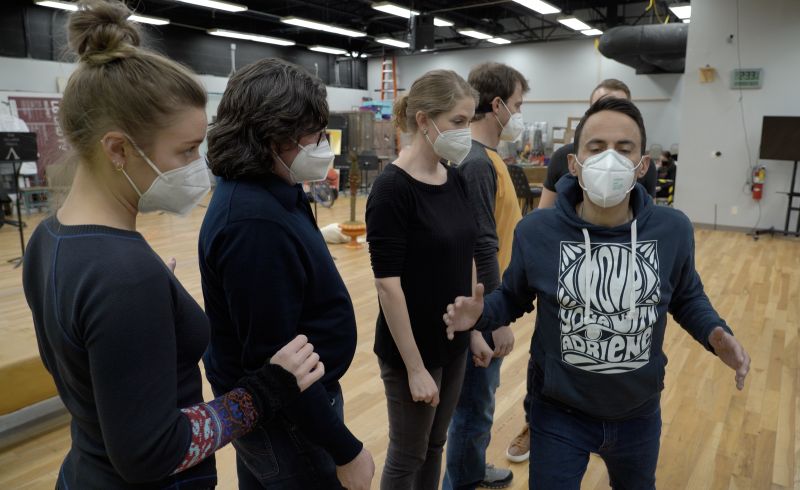
Michael Shell works closely with a group of singers rehearsing The Barber of Seville. (credit: Felipe Barral)
Another influence on me was Jim Robinson, the artistic director at Opera Theater of Saint Louis. He would create an environment in the rehearsal room, a world for people to bring their best to that performance and allow them to find things within them to create these roles. That was something that greatly influenced me.
Co-directing Don Giovanni and directing Cosi Fan Tutte at Opera Theater of Saint Louis were challenging for a whole host of reasons but mostly because we were trying to find the right feel for the show, which included finding the right cast.
After those two performances, I started to find more freedom in terms of my direction, where I knew the story I wanted to tell and the world I wanted to create. I could see the freedom to make different choices, to try other things. I was open and more available to those I was working with to help define who these people were and because I could trust myself in terms of what I needed to happen in terms of the storytelling.
Even today, after doing this Barber of Seville production seven times, we’re still finding new things because the cast is different. That’s something that Jim taught me. I saw how he would work, starting with the same idea but allowing those he was working with to change it if we found that it worked better for different reasons. Those are the sort of influences on how I created this show.
I also think I like to laugh and I don’t want to do something where it seems like it’s an inside joke but I also don’t want to give a courtesy laughter all night — meaning I know it’s funny, or I think it should be funny, so I’m going to laugh because it’s supposed to be funny.
Generally, when I’m doing a comedy, if I don’t find it humorous in the right way, meaning if I’m watching it objectively and I’m not surprised, not interested, or not finding some humor in what they’re doing now because I inserted it, it’s not going to work. I think I intrinsically have a sense of humor that I enjoyed to laugh and know when a laugh is actually happening because it’s spontaneous or authentic rather than let’s do another gag or another shtick. If I’m working hard to be objective and still laugh, then I know it’s good.
Gresham: Well, you’re talking about working very flexibly with the cast, but one of the most conspicuous factors is the conductor. Once the performance begins, guidance is in the conductor’s hands. So it’s crucial to create a good relationship between the stage director and the orchestra’s conductor. Could you talk a bit about your approach and personal experience? I know you’ve worked on multiple occasions with Arthur Fagen, who is conducting this Barber of Seville.
Shell: Because I was a musician, a singer-pianist, I also thought I wanted to be a conductor at some point, so my whole way of directing comes from the music. One of the reasons why we set this production the way we did is because I wanted to find a way of telling it that still kept the spirit of Rossini’s music and story intact. I didn’t want to just sort of throw that out and create something else, so I’m very in tune with the music. I enjoy collaborating with the conductor, which some directors do not. They want to be the only one, and they want the conductor to just do their thing independently. I am not that way. I enjoy it when I can direct collaboratively. I love that because even though I am a musician, I’m still thinking dramatically, and that’s why when I have a conductor like Arthur, he will look at it and say, “You know, I think this music really should be…”
Last night, he talked about specific phrases where he wanted to be much more legato. I can’t remember the word he used, but it was a softer approach rather than a hard, percussive approach. The way I had directed this moment went in the opposite direction, and I was able to match his idea with what I wanted to do. But I was able to use it from the music out, and that makes this moment occur so that it is entirely in sync because, as you said, I’m done, and the conductor is pacing the show, so if we’re not in sync about that, it shows.
After working with Arthur many times, I know that he’s always thinking about the dramatic tempo of the show and that he wants it to be seamless with him. We are working in tandem. So the singers who are there with him musically are also continuing the dramatic motion of the show. I enjoy working with the conductor in finding that balance.
Gresham: I think a great example might be the Finale from Barber, where, if you want to take it very fast, like in some of the older recordings, you can get that feeling of really frenetic comedy.
Shell: We were working on the Finale yesterday afternoon, and there was a moment, in particular, where he said, “I really like to go faster here,” and I said, “That’s great, let’s do it.”
There was another moment where we were doing the Act I chorus, and I said, “Do you think we could go faster?” He said, “Well, it’s a little dangerous, but I’ll try it. We will, of course, have to see what the orchestra does.” And I said, “That’s perfectly fine.”
That’s where you need to be open to collaborating because the show’s dramatic motion or intent can profoundly impact the comedy. It doesn’t just exist on its own. So I feel like we’re working in tandem to create The Barber of Seville’s wild and crazy world.
Gresham: And yet again there is that fact that once the rehearsals are over, and the first performance begins, it’s essentially out of your hands. Do you find that at least emotionally difficult?
Shell: I think it is a challenge really because there are many different types of directors. There are the ones who want to be seen as the person that made it all happen, meaning they are the star they are the ones that created it all, and this is doing good and bad for my career because, to be honest, I’ve gotten reviews that have been great reviews for shows where I have not been mentioned.
As a person trying to create theater and create something that people get so absorbed in they forget that there was a director, that is okay for me. But I will tell you that sometimes opening night can be a very lonely night for the director because you have to step back. You have to hand it to them, and I’m doing that during the dress rehearsal process. You’re handing it over to the maestro and the performers, and you have to recede into the background.
I can tell you I’ve done a curtain call with a cast, and then everybody goes off. The people are greeting the cast, and I recede to the background. While I do so, I can have a conflicted feeling about that. I’m thrilled that the audience has enjoyed it, that they follow the characters along their crazy or wonderful journey, depending on what the show is.
But at the same time, it’s like you have given birth. I know that sounds very strange, but you have given birth to something, and it now has its own life. You must say goodbye to it. I can no longer hold on to it. It’s not mine anymore. It’s theirs.
There is a bittersweet thing about that, and having done this production of The Barber of Seville as many times as I have, I’m not sure if I’m going to get to do it again. These Atlanta Opera performances will be the eighth time, and you know it may not happen again. I need to settle myself to say goodbye to The Barber of Seville on the outside chance that I will never again see all of the things I’ve created from the ground up with the set designer with the costume designer with the lighting designer. This may be the last time I see it.
It really is like something that you created, and you give it. They have now they own it. So it’s that bittersweet feeling that you get on opening night where you have to sort of let it go, and that’s something that no one prepared me for as a director.
Gresham: What are your hopes for how the audience perceives this production?
Shell: People need to know that it is not a traditional Barber of Seville. If they love the opera and have seen it many times, I hope they’ll see it in a new way, yet not feel it is unfamiliar. My goal has always been to make the show come alive as if it was the first time anyone was seeing it. I hope that people who’ve seen it many times will come and think, “gosh, this is so fresh and fun!” because of Rossini’s a genius, yes, but also, I hope, because we have lived up to that genius and built something that matches that perfect blend of comedy and farce. ■
External links:
- Michael Shell: michaelshelldirector.com
- The Atlanta Opera: atlantaopera.org

Mark Gresham is publisher and principal writer of EarRelevant. he began writing as a music journalist over 30 years ago, but has been a composer of music much longer than that. He was the winner of an ASCAP/Deems Taylor Award for music journalism in 2003.
RECENT POSTS
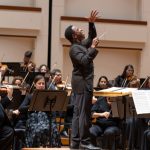 Kwamé Ryan and the Charlotte Symphony, with violinist Gil Shaham, deliver a rapturous all-Tchaikovsky evening • 11 Oct 2025
Kwamé Ryan and the Charlotte Symphony, with violinist Gil Shaham, deliver a rapturous all-Tchaikovsky evening • 11 Oct 2025 Equilibrium and elegance: Dover Quartet and de Guise-Langlois find balance in Haydn, Jalbert, and Mozart • 10 Oct 2025
Equilibrium and elegance: Dover Quartet and de Guise-Langlois find balance in Haydn, Jalbert, and Mozart • 10 Oct 2025

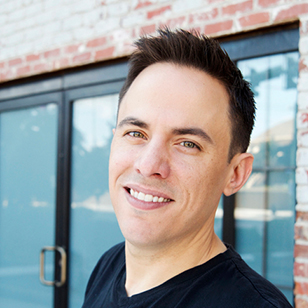
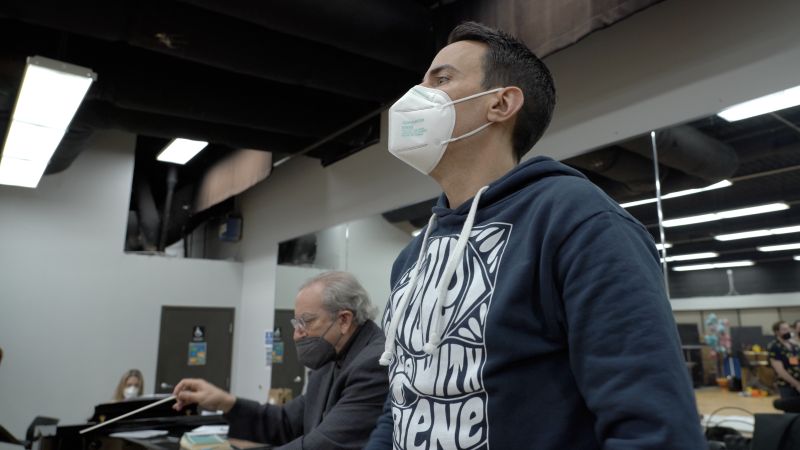
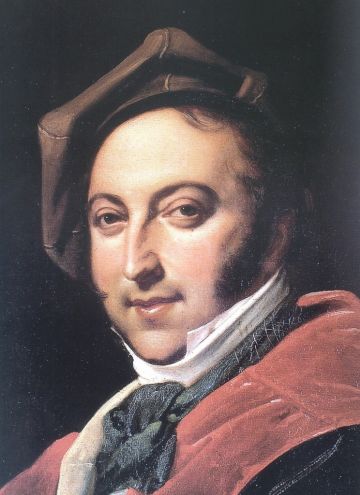


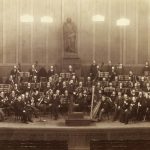
.png)